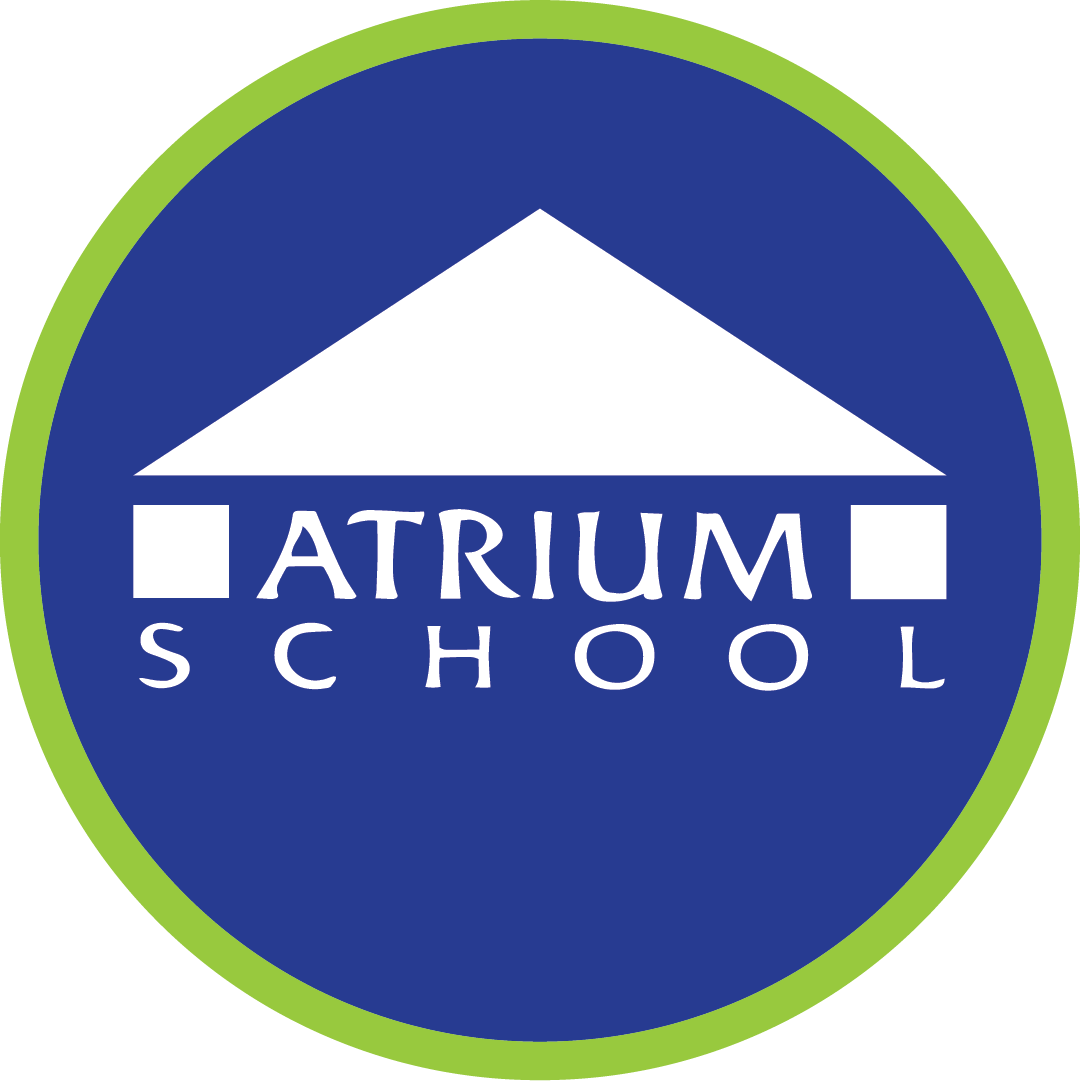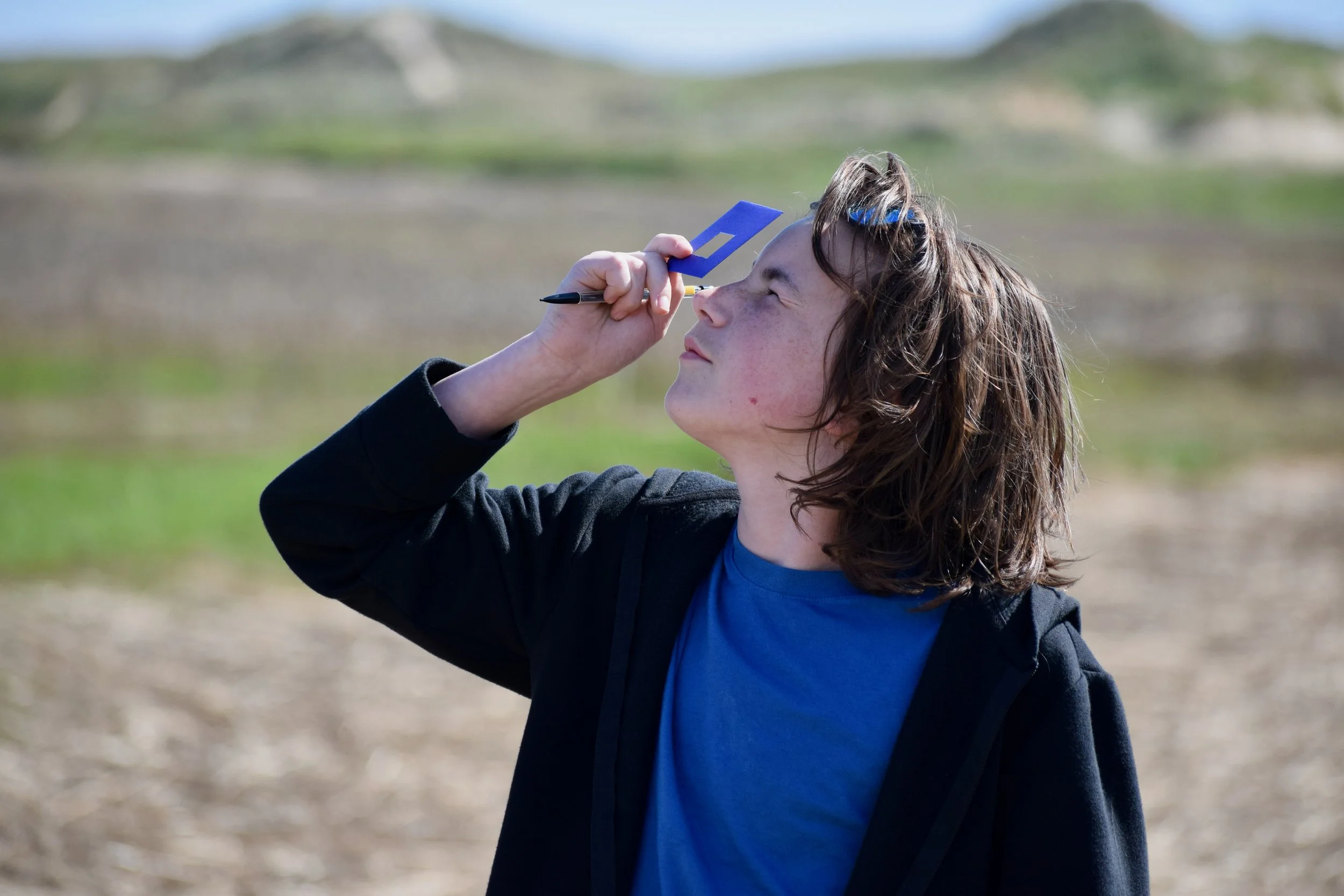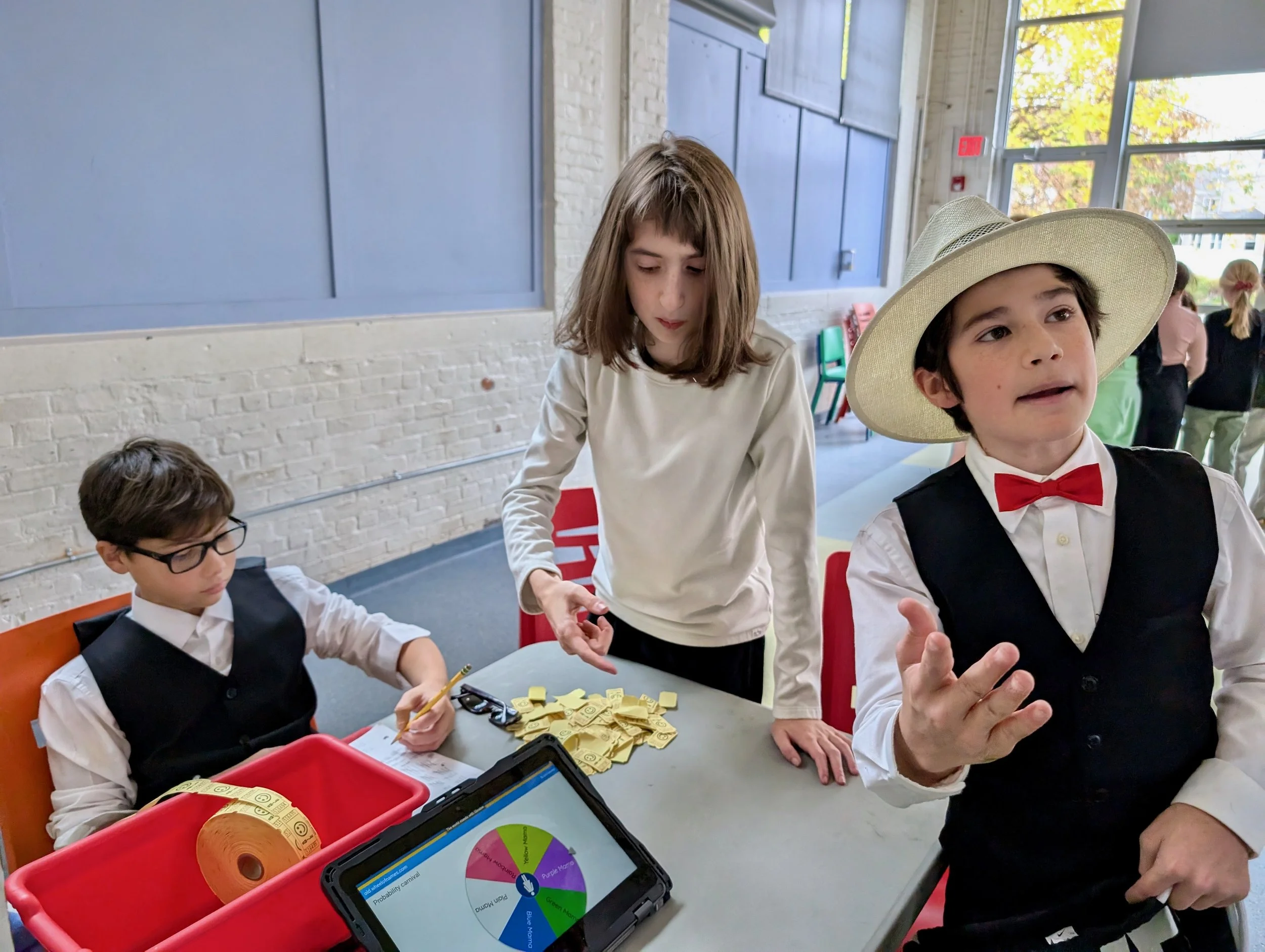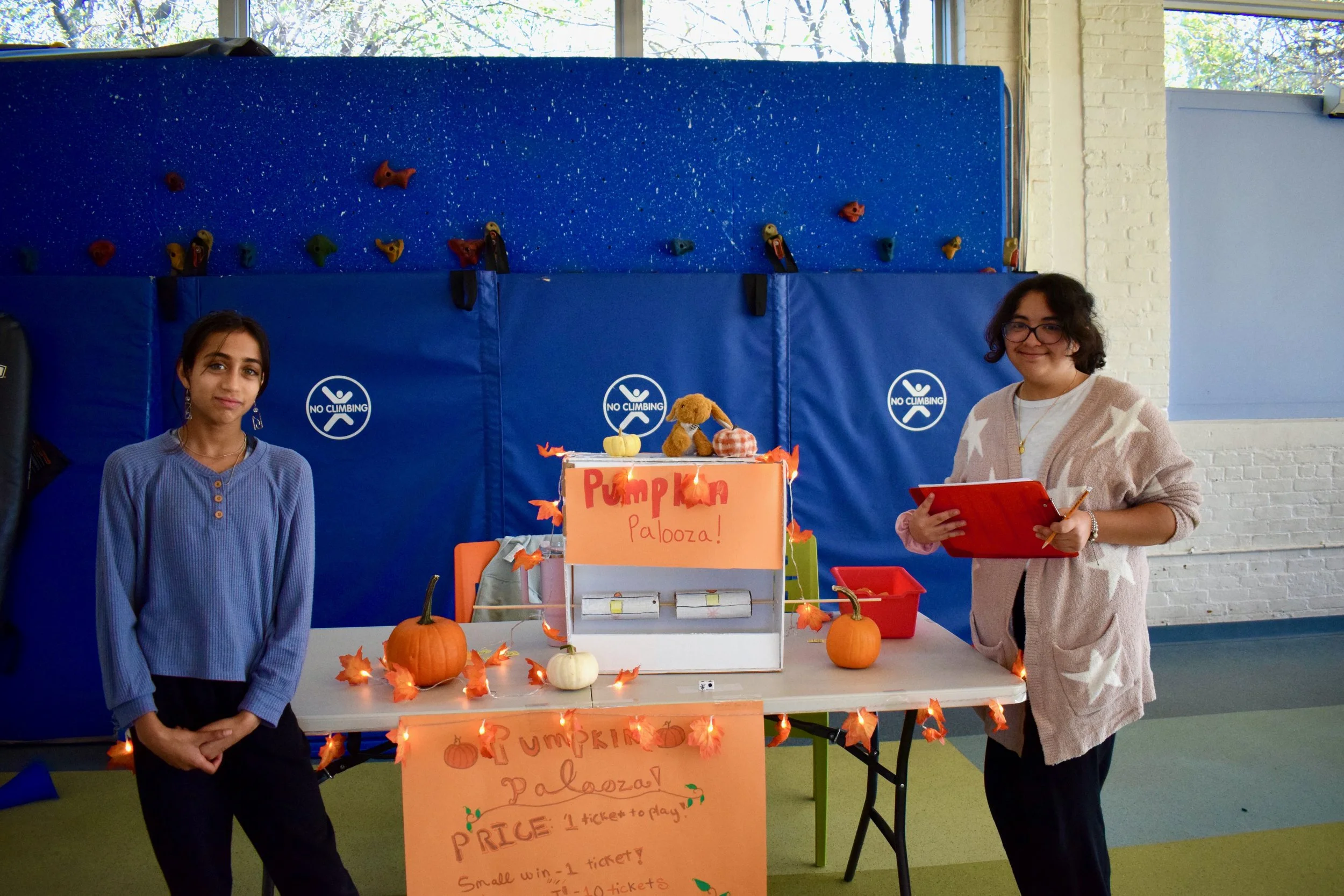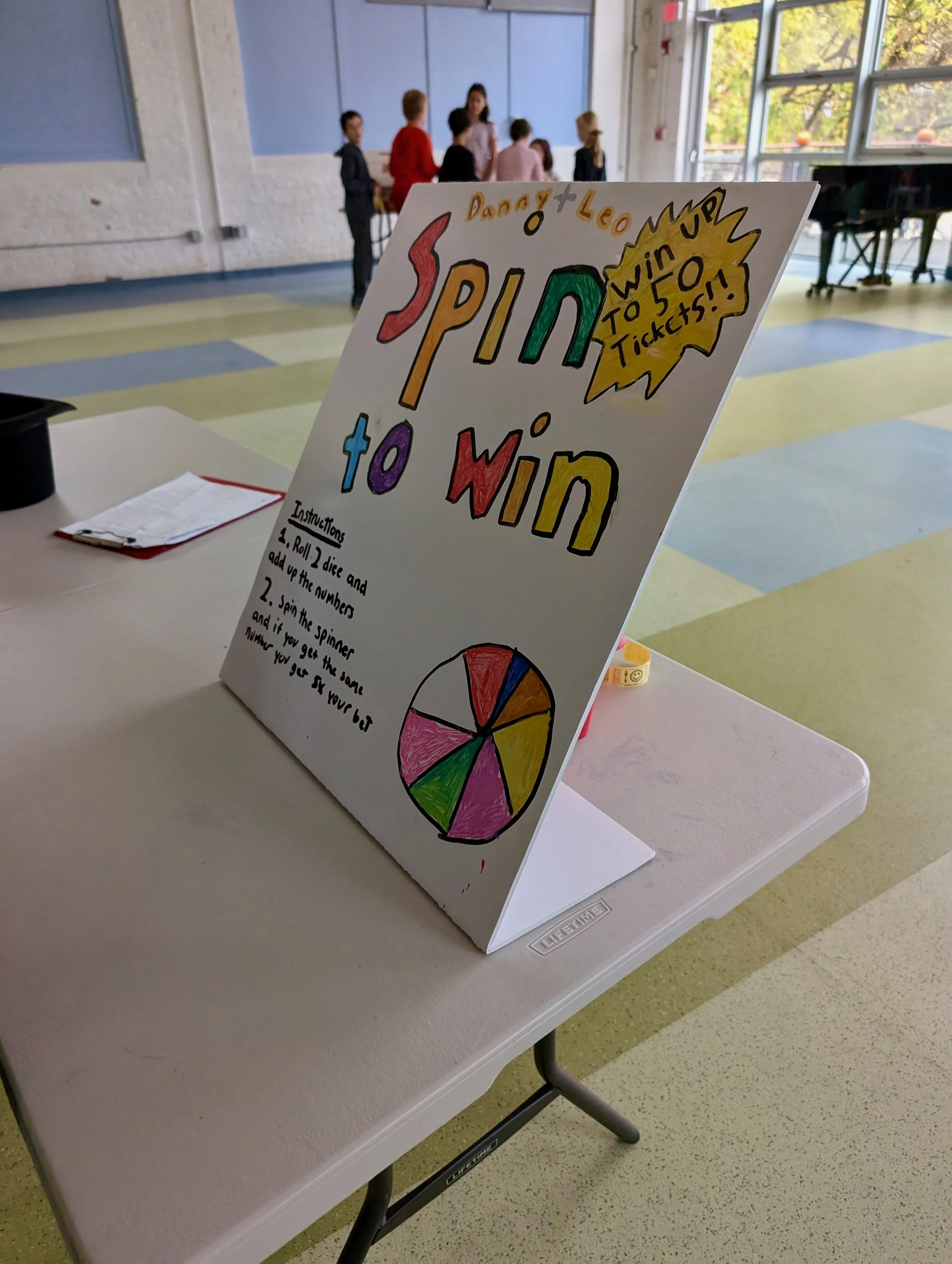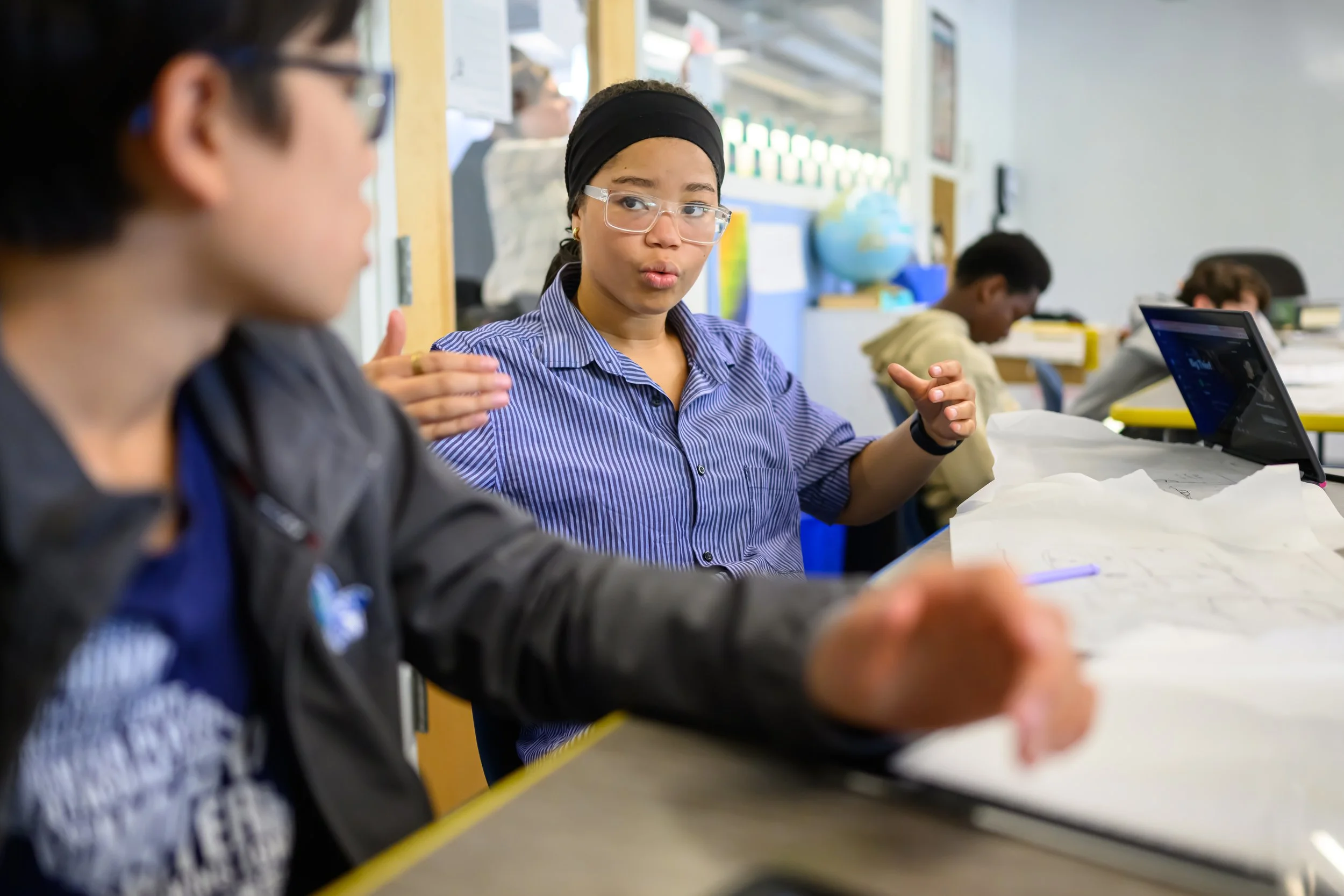Grade 7
Seventh Grade Theme: "How Do We Make Connections?"
Seventh graders are ready for greater autonomy, probing deeper in their learning and relationships. They are on the path to becoming strong advocates for themselves and others, and are gaining insights into how they learn best, as well as what skills and supports help them thrive – both academically and socially. Students use the lens of “connection” to explore how people, ideas, and systems are linked – whether it be physically, scientifically, historically, culturally, or socially – and the significance of these relationships.
A capstone of Grade 7 is the Crossroads Project, an intersection of all four core subjects in the deep study of a world culture and climate. Students design and build a scale model of a sustainable building that addresses the needs and challenges of a specific world community. This project pushes students’ thinking about the interconnectedness of academic disciplines, as well as drawing on the interpersonal connections they have formed throughout the year to facilitate close and flexible collaboration within their team.
The year culminates in an immersive four-day ecoliteracy trip to Cape Cod, where the class engages in hands-on ecological fieldwork, place-based writing, and cooperative exploration.
English Language Arts (ELA)
Seventh graders build on the reading and writing foundations developed in sixth grade, deepening their ability to make connections between texts, personal experiences, and the wider world. They explore reading, writing, and identity as dynamic, social processes – learning how language both shapes and reflects who we are. Students strengthen their writing through explicit instruction in paragraph development and the six traits of writing: ideas, word choice, organization, voice, sentence fluency, and conventions. Revision, transitions, and clarity are emphasized as essential parts of the writing process.
Throughout the year, students read a variety of texts – poetry, short stories, and both contemporary and classic literature. Core books often include Darius the Great Is Not Okay by Adib Khorram, They Called Us Enemy by George Takei, and Dear America by Jose Antonio Vargas. Projects continue to extend learning beyond the page: students create visual and written character analyses, explore what it means to be multicultural in America, and examine how identity and belonging are represented across different narratives. These experiences encourage students to think critically, write thoughtfully, and see their voices as part of a larger conversation.
Mathematics
Seventh grade mathematicians work with percent and probability in the Fall, culminating in the school-wide Probability Carnival, where students design and build a game and compute its odds of winning. In the winter, they solidify their understanding of the real number system and look at the history of mathematics. They engage in intensive algebraic work using hands-on manipulatives that provide both access and challenge for students, allowing them to see the deep connection between algebra and geometry. Students discover how to simplify expressions with variables and solve multi-step, one-variable equations. Additional exciting projects include: the Mathematician Project, the Visual Patterns Project, and the Islamic Art and Culture Project.
Social justice and real-world connections are central to the middle school math program. In addition to daily lessons and projects, weekly Math News segments encourage students to analyze current events through a mathematical lens. In the Mathematician Project,students dive into the lives and identities of real-life mathematicians – from Archimedes to Maryam Mirzakhani – researching and then crafting skits that illuminate the extraordinary math and immense challenges they tackled during their individual lives.
Science
In seventh grade science, students study the interconnections within and between living organisms at multiple levels. From the connections between cell organelles to the complex relationships between populations in the environment, students ask questions about how things work together, including their own role as part of the web of life. Seventh grade scientists continue to develop scientific literacy and inquiry skills through experimental design and hands-on inquiry. They collect and analyze real-world datasets, explore local ecosystems, and engage in debate. They also learn the formal language of scientific writing and develop the ability to support claims based on evidence. Through citizen science projects and engineering design challenges, they investigate issues of sustainability and responsibility. Key projects for the year include Climate Change for Good, which combines art, data analysis, board games, and poetry to explore pathways to resiliency in a changing world, and the Cape Cod Ecoliteracy Trip, where students become ecologists on salt marshes, beaches, mudflats, and pitch-pine forests.
Social Studies
Seventh grade students study the evolution of modern society through investigations of ancient civilizations. Students distinguish historical knowledge based on myth and storytelling from that constructed from primary sources. Comparing and contrasting the ancient societies built in Mesopotamia, Egypt, India, China, and other empires around the African continent and the Mediterranean region, students connect how the religions, governments, trade, technologies, and art of these cultures shaped the course of world history. The language of geography, economics, and politics is emphasized throughout the year, and students have opportunities to apply their individual knowledge and interests in class presentations and discussions. Incorporating current event topics creates connections between the old world and the present. Students end the year with an exploration of the fall of the Roman Empire.
